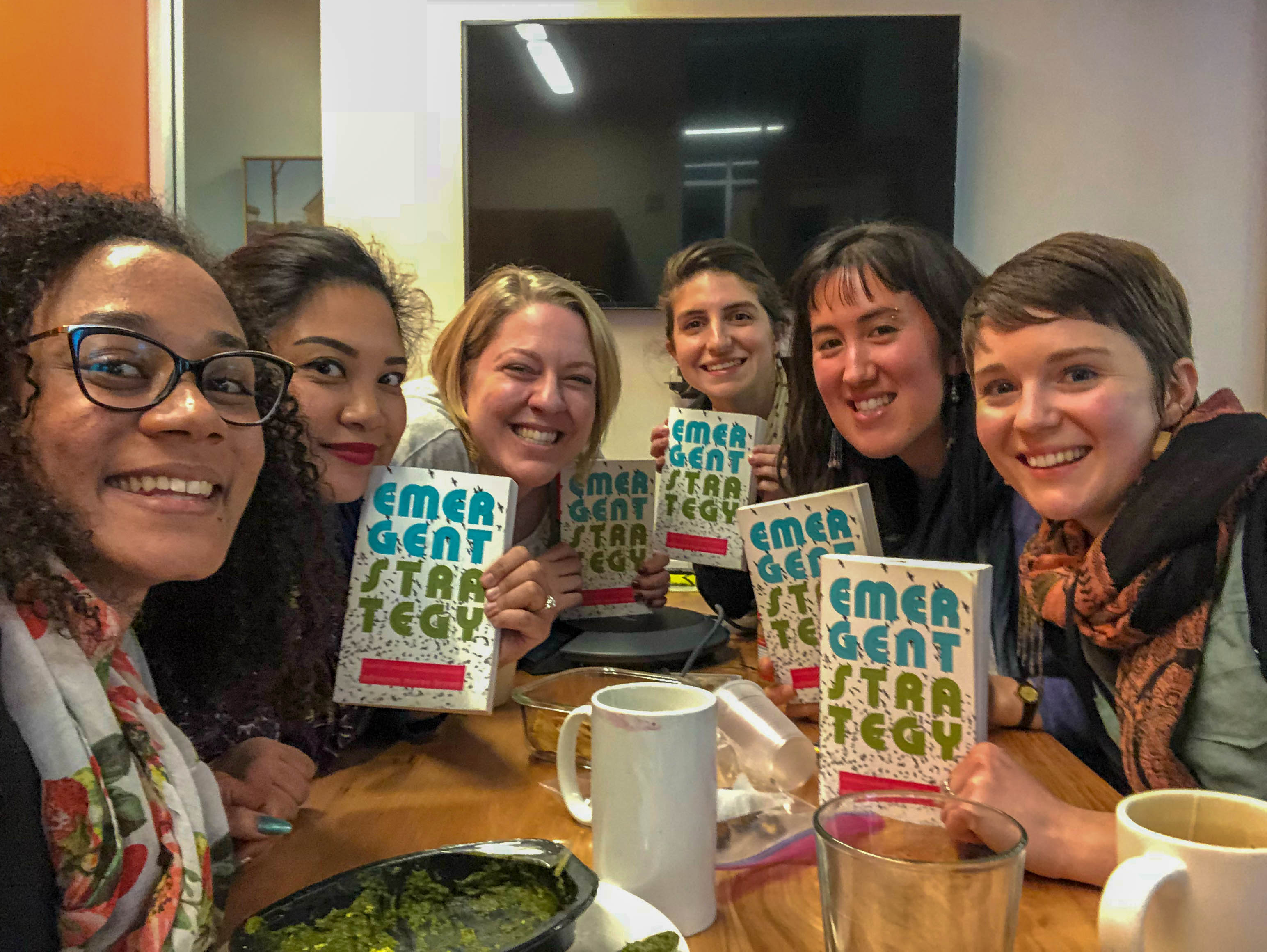Revisiting our roots to propel us forward – lessons from adrienne maree brown’s “Emergent Strategy”

Immigrant rights, income inequality, reproductive rights, climate justice—these are just a handful of the issues that are increasingly being discussed in mainstream news and everyday conversations. Those of us who come from communities facing oppression are securing places at tables we’ve never had a seat at, spreading awareness about our communities’ experiences with the demands that we make at those tables. And in some cases, we’re building our own tables.
adrienne maree brown’s book Emergent Strategy discusses the continual state of flux that we go through as a society, and is meant to serve as a radical “self-help, society-help and planet-help” guide for those who are striving to create change for the common good. “Emergence emphasizes critical connections over critical mass, building authentic relationships, listening with all the senses of the body and the mind.” brown’s definition of emergence challenges the scarcity and individualistic messages that we receive from capitalism—that we are individuals who are responsible for nobody but ourselves, that we must work as quickly as possible to acquire as much as we can (whether that be money, property, or other tangible goods) if we want to “have enough.”
Emergence, as described by adrienne maree brown, encourages us to revisit the communal ways of living that were practiced by the generations that preceded us. Lending circles and cooperative living are just two examples of practices that are being revisited by people that have moved away from cooperative economics due to assimilation (adaption for survival.)
This idea of “going back to what we know” shows up in the way we think about banking at Beneficial State Bank and Foundation. If you’ve ever heard Beneficial State Bank’s co-founder and CEO Kat Taylor talk about the work we’re doing at Beneficial State, then you probably heard her refer to banking as “the original form of crowdfunding.” Basically, banks collect deposits from customers and then they leverage those deposits to create loans. When I tell people that I work for a nonprofit that owns the economic rights to a triple bottom line bank (and then go into detail about what that means), the reaction I get is usually surprise (and in some cases, awe) that a bank like Beneficial State Bank exists. While Beneficial State Bank’s ownership model is unique, the practice of the public putting their dollars together to fund activities is nothing new.
“Intentional adaption is the heart of emergent strategy,” brown explains. It is “the process of changing while staying in touch with our deeper purpose and longing.” As we continue to push for social change, regardless of whichever field or industry we are seeking to change, it behooves us to stay intentional about the outcomes we want while remaining honest about our limits as finite beings. Many of our movements are seeking to create new systems (or trying to reform systems in such a way that they are unrecognizable). Finding the balance between adapting to reduce harm and exhaustion, with releasing what doesn’t work as we build something new, will be paramount to ensuring we are able to sustain our work for the long-term.
Symone is Beneficial State Foundation’s Digital Engagement Manager based in Oakland, CA.
This blog post reflects the author’s personal views and opinions, and does not represent the views and opinions of Beneficial State Bank and/or Beneficial State Foundation.


